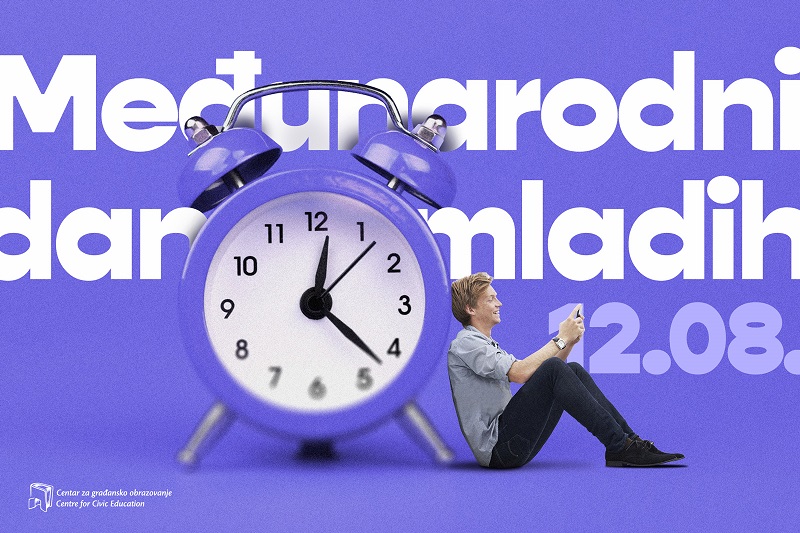Centre for Civic Education (CCE), on the occasion of 12 August – The International Youth Day, calls on the competent institutions working on protection and advancement of position of youth to devise additional actions towards essential inclusion of young people into socio-political processes in times of global challenges and increased health risk, but with the prevention of abuse of young people for particular and party interests.
Major global challenges, such as the COVID19 pandemic, have also affected the deteriorating position of young people in Montenegro. Due to the economic disadvantage of the service and tourism sector and the impossibility of traveling abroad for training and gaining work experience, youth unemployment has also increased significantly. Moreover, the quality of education has been seriously eroded due to online teaching, which will have implications for the further personal and professional development of young people. It should be emphasized that this type of teaching deepens the social gap between well-off, on one side, and poorer groups of young people, on the other, who do not have access to the Internet and accompanying tools and are not able to receive adequate education in that form. And the mental health of young people in these circumstances suffers from increased pressures due to prolonged health precautions, isolation and stress. Altogether, this leads to a higher degree of anxiety amongst young people, and this exacerbates socio-economic uncertainty. Therefore, more than ever, it is necessary to include young people in socio-political and decision-making processes and to strengthen youth activism as a manner of their expression and influencing society and the processes that concern them.
Findings of the Youth Study Montenegro 2018/2019, conducted by the Friedrich Ebert Stiftung and the CCE, indicate that just over one-third of youth in Montenegro volunteer daily or periodically, and that a growing number of young people want to leave the country. However, nowadays young people in Montenegro are focused on their country, due to impossibility or limited opportunities to travel abroad, and this is the moment when the competent institutions should support the promotion of youth activism and increase overall inclusion of young people in all social developments. Above all, it is necessary to strengthen the capacity of young people for active participation and encourage them to take an active attitude towards problems and challenges.
Also, in the year of parliamentary and local elections, the CCE underlines the need to prevent the abuse of young people for political and electoral purposes. Previous CCE’s findings indicate that political parties are not at all or marginally addressing youth within their election policy programmes. Young people, as a potent source of new and fresh ideas, initiatives and driving processes, must be essentially included in the political programmes and goals of all political subjects.
Pressed by their life transitions, switch to the world of adults, job search and housing security, COVID19 uncertainties, complex political situation and upcoming elections, young people must be provided with filters to overcome these challenges. Strengthening youth activism and youth participation in socio-political and decision-making processes will contribute to the reduction of the democratic deficit of government, better and more sustainable policies and strengthen youth confidence in institutions, as stated in this year’s United Nations International Youth Day statement.
International Youth Day has been marked since 12 August 1999, by the decision of the United Nations General Assembly, based on the recommendations from the World Conference of Ministers in charge for youth in Lisbon, held in 1998.
Željka Ćetković, Coordinator of the Active Citizenship programme

